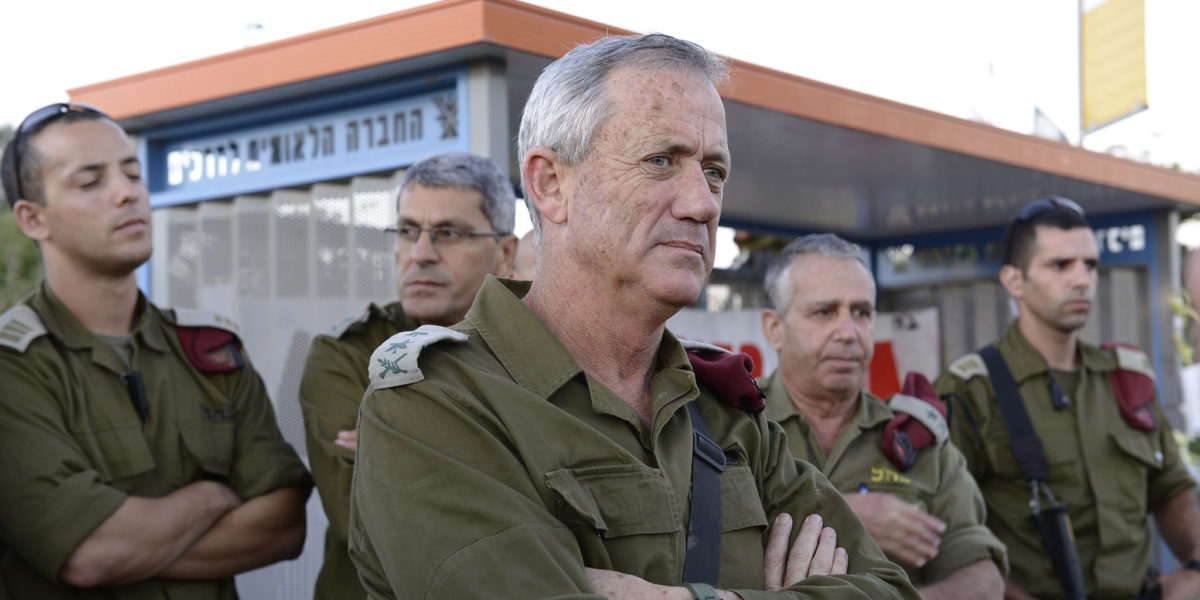Once again, the selective and arbitrary designation of “terrorism” is used by powerful states to eliminate the voices of their opponents who call for decolonization and justice: a message colonized powers don’t want to hear.
Last month, Israel’s Defense Minister Benny Gantz designated six Palestinian human rights and civil society groups operating in the West Bank as terrorist organizations.
The six Palestinian organizations targeted by this decision are Addameer Prisoner Support and Human Rights Association; Al-Haq, Defense for Children International – Palestine; the Union of Agricultural Work Committees; the Bisan Center for Research and Development; and, the Union of Palestinian Women’s Committees. According to UN human rights experts, these organizations:
“speak the language of universal human rights. They use a rights-based approach to their work, including a gendered analysis, to document human rights abuses of all kinds in Palestine, including business-related human rights abuses.”
Unfortunately, this doesn’t seem to be the position of the Israeli defence ministry, which claimed the “designated” groups were linked to the Popular Front for the Liberation of Palestine (PFLP), a left-wing movement with a political party as well as an armed wing that has carried out deadly attacks against Israelis.
The problem with such serious and dangerous claims is that they were made with no transparency nor evidence shared with the public. Even when a 74-page report prepared by the Shin Bet, the Israeli intelligence agency, was shared with European countries about the alleged links of these organization and “terrorism,” the Europeans, who many of them fund these organizations, remained skeptical and replied they have found no serious or convincing evidence about the claims.
Further, after an Israeli delegation went to Washington to brief American officials about the “seriousness” of the cases against the six civil organizations, the U.S. administration remained shy in aligning itself with the Israeli decision and pretended it is still reviewing the so-called “ironclad” classified evidence Israel’s officials claim prove those links.
Meanwhile, respected human rights organizations like Human Rights Watch and Amnesty International forcefully condemned Israel’s decision and the consequences that would allow the Israeli government to raid the offices of these organizations, arrest their staffs, cut their funds and put an end to all the humanitarian work they offer to support women, children, and other vulnerable groups within Palestinian society.
In Canada, there has been a frightening silence from government officials regarding Israel’s decision to label these Palestinians organisations as “terrorist.” Despite some human rights organizations who asked for a clear condemnation of the decision, nothing came from Global Affairs Canada nor the Prime Minister’s Office about the decision taken by the Israel Ministry of Defence.
Even the Canadian columnists usually very eloquent in defending some human rights causes abroad didn’t find this cause worth of raising with their readers here. Prominent Canadians authors like Naomi Klein, Yann Martel and Madeleine Thien published a letter abroad in the U.K. stating their opposition to the decision, as if Canadians weren’t concerned by the issue.
This silence by the Canadian government is outrageous but not necessarily unusual.
Since 2002, Canada has used “terrorism” vocabulary and consequent legislation as a bogeyman to intimidate marginalized groups: from Muslim communities to Indigenous groups to environmental activists. Legislation was produced and passed, people were arrested and organizations were shut down.
During the Harper era, IRFAN-Canada, a Muslim charitable organization, was labelled a terrorist organization, had its charitable status revoked and was accused of channeling money to Hamas in the Gaza Strip. Other Muslim organizations are still threatened by the specter of the “terrorism” label, especially if their operations are happening in military zones of conflict.
Very recently, two Canadian journalists were arrested in British Columbia at a pipeline protest camp. Amber Bracken and Michael Toledano were not charged with terrorism. Nevertheless, after a judge ordered their release, they will return to the court in February for a hearing “related to allegations of civil contempt of court.”
According to many human rights groups, it is their work in reporting about the intimidating and bullying actions of the RCMP in the Wet’suwet’en territory that
is considered troubling enough for the attempted elimination of their voices. The RCMP official position hides behind concerns over “security” and respect of the injunction.
On one hand, we have a government that claims to be serious about “reconciliation” with the First Nations people and on the other hand, we have the same government protecting the actions of the RCMP in invading Indigenous communities and arresting activists and journalists. On the international level, we have a government that remains silent about the acts of the Israeli government that subjectively labels Palestinian human rights groups that challenge the acts of abuse and violence of the same government as “terrorists.”
This double standard and pick-and-choose policy weakens us as a country and makes us a less credible voice in human rights, both locally and abroad.




